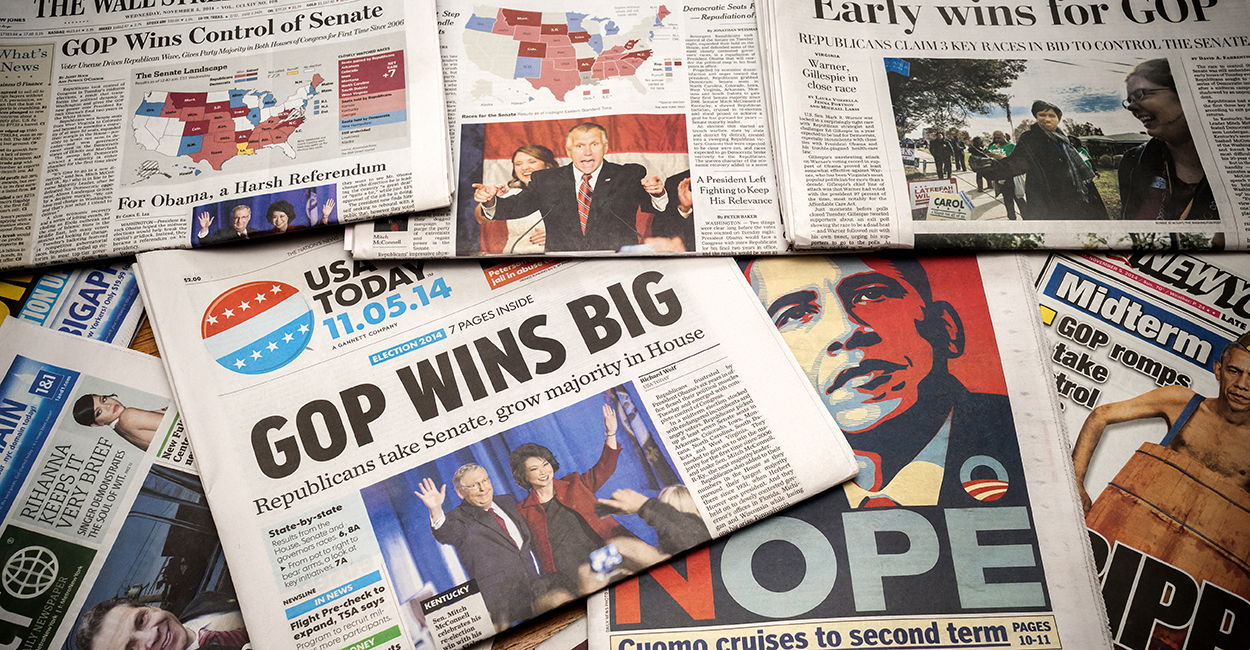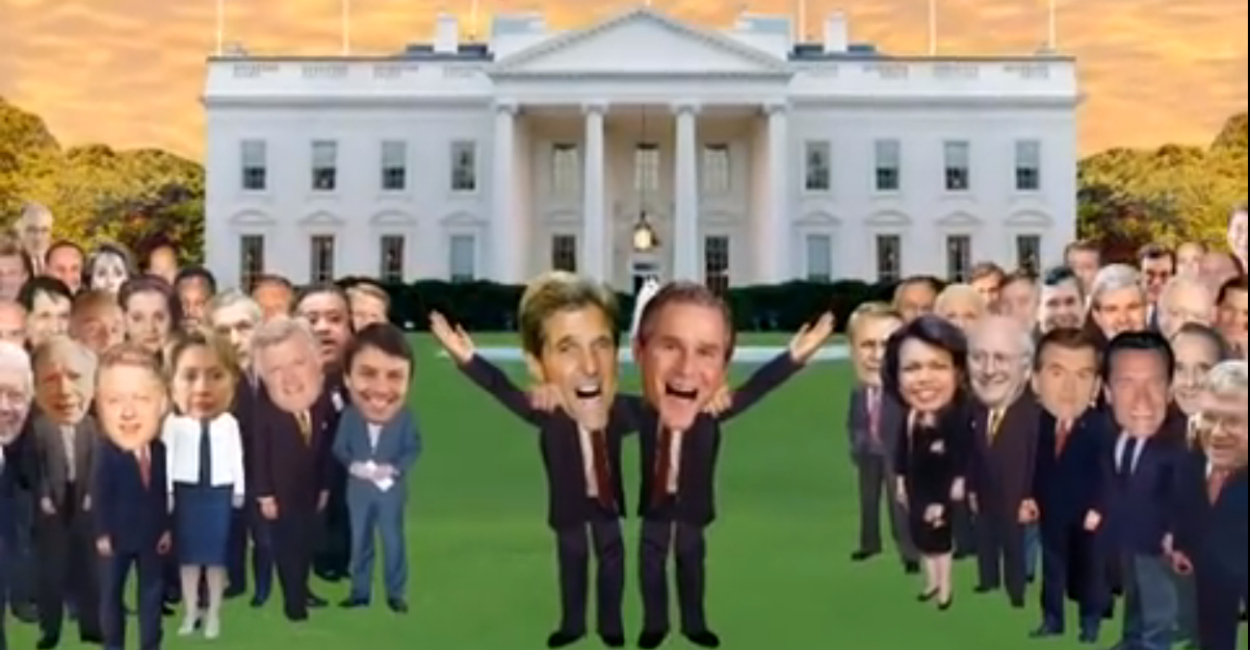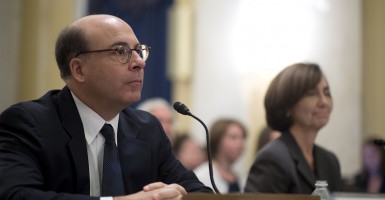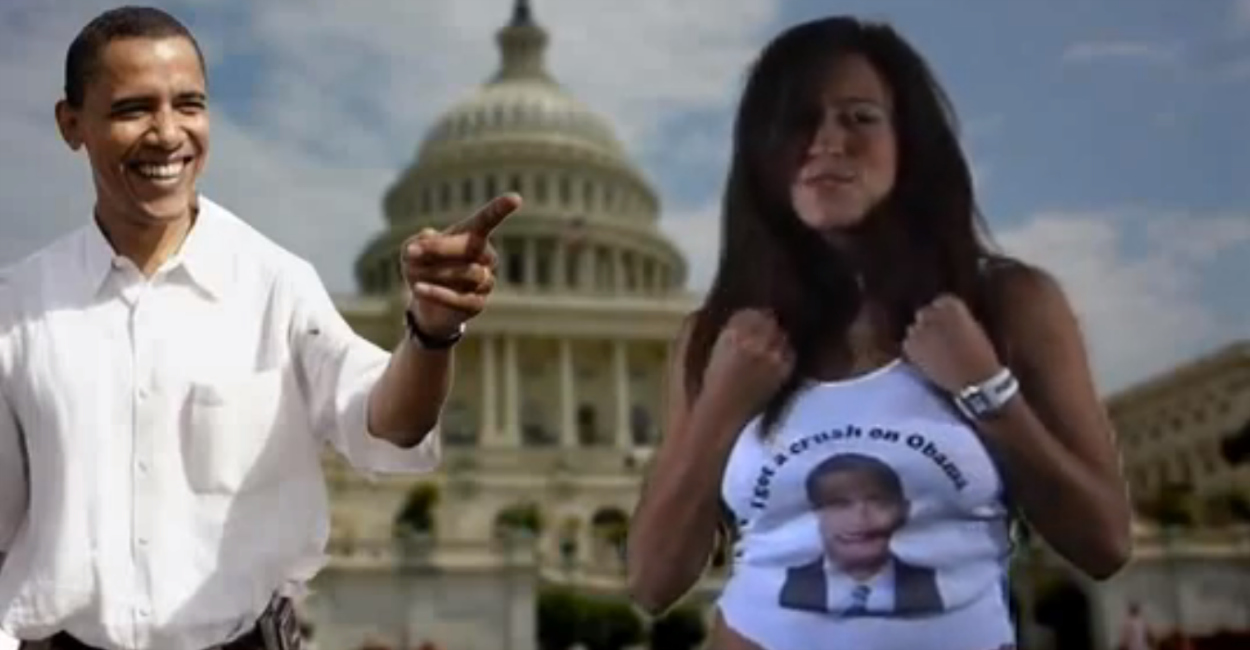The Federal Election Commission has steered clear of regulating political speech on the Internet. But the FEC’s outgoing chairman, Lee Goodman, warns that the commission could well impose rules on Americans who disseminate information on blogs, video channels or podcasts.
Goodman, a Republican, last year headed the six-member FEC, which oversees campaign finance laws. In an exclusive interview with The Daily Signal before his term ended, he discussed a 3-3 decision by the six-member commission in response to a complaint filed against a nonprofit group called Checks and Balances for Economic Growth.
The nonprofit had posted two campaign videos on YouTube without making disclaimers or divulging production costs. The complaint alleged that Checks and Balances violated the Federal Election Campaign Act of 1971 because it didn’t disclose the information.
Goodman and the two other Republicans on the panel contended that free postings on the Internet are exempt from the law. However, FEC Vice Chairman Ann Ravel, a Democrat, called for a “re-examination of the commission’s approach to the Internet.” Such a review, Ravel said, is “long overdue.”
Ravel has not made definitive proposals for new Internet regulations, a spokesman told The Daily Signal, but she plans to meet with technology and media leaders this year.
This transcript of the interview with Goodman was edited for style, clarity and length.
The Daily Signal: What was the basis for your ruling that Checks and Balances for Economic Growth did not violate the Federal Election Campaign Act?
Goodman: In 2004 and 2005, the FEC undertook a rulemaking specifically addressing Internet communications and Internet political activity. The commission heard public comments from over 800 citizens and organizations. The commission drew a fairly bright line in its regulations as a result of that process. And under the 2006 rule, the commission will regulate paid advertising on the Internet.
If my organization wants to take out a banner ad or place an Internet video on a commercial website and pay a fee for that advertising space, the FEC regulates that expenditure just like it would a TV ad or radio ad. However, if an organization places content for free on the Internet, there is no expenditure to regulate because the dissemination cost is free.
In the process of drawing that line in the rulemaking process, certain organizations proposed that the FEC count production costs of websites and podcasts and YouTube videos as an expenditure, and the commission declined to adopt that proposal.
Since 2006, if your dissemination on the Internet is free or low-cost, such as posting a free video on YouTube or building a website or organizing a social media platform, or any number of Internet-based political activities, you are unregulated.
The American public has embraced this freedom, as evidenced by the hundreds of thousands of YouTube videos, blogs, websites, podcasts, social media posts, social media platforms and other Internet-based activities that have gone unregulated without so much as an inquiry from the FEC.
I don’t think there is any evidence that this robust exercise of freedom on the Internet has corrupted any politician in America. Moreover, it’s clear that the Internet has facilitated a free marketplace of ideas and political expression, where individuals and small groups compete with large, well-funded voices on a level playing field.
For all these reasons, my two Republican colleagues and I voted the way we did in the Checks and Balances matter, and will oppose efforts to impose far greater regulation of political speech on the Internet.

Republicans on the FEC ‘will oppose efforts to impose far greater regulation of political speech on the Internet,’ Goodman says. (Photo: Newscom)
The Daily Signal: If this discussion is brought before the FEC as Vice Chairman Ann Ravel said, what implications could this have on the blogging community, on any Web-based news organization, on people with YouTube channels or organizations posting YouTube videos?
Goodman: I don’t think we can begin to contemplate all of the severe consequences to online political speech as a result of even opening this discussion within the FEC.
First, I believe that opening this issue will serve only to deter low-cost and free discussion of political issues on the Internet. As people begin to hear that the Federal Election Commission is considering a crackdown on Internet political speech, some people will be discouraged from participating. I think that’s a shame, and that’s one reason I’m speaking out loudly and clearly that three Republican commissioners will oppose any effort to restrict freedom on the Internet.
“Republican commissioners will oppose any effort to restrict freedom on the Internet,” says 2014 FEC Chairman Lee Goodman of online political speech
Second, I cannot imagine how the Federal Election Commission will begin to regulate hundreds of thousands of blogs, YouTube videos, chat rooms, emails and links, and all sorts of Internet-based political discussion because of how vast political discussion on the Internet currently is.
The problem for the FEC as a practical matter — put aside the philosophical and policy implications — what the vice chair is inviting the FEC to do is to establish an Internet review board where a room full of government bureaucrats sit on a daily basis and troll the Internet for political commentary — to identify online commentators who did not register or report their expenses in connection with their website, and to issue subpoenas seeking information about their expenditures.
I know of no other way that the FEC could regulate the hundreds of thousands of posts on the Internet, absent such a review process.
The Daily Signal: It seems like this would hurt the little guys starting blogs, as opposed to big companies and news organizations. Is that the case?
Goodman: The specter of regulation of Internet political speech will discourage small groups and individuals from using the Internet to express their political opinions. If we regulate it, we will necessarily discourage it and get less of it. It’s an axiom that if you regulate it, you will deter it and get less of it.
Under current law, there are two important exemptions from FEC regulation: One is the media exemption. Congress wrote in the Federal Election Campaign Act an explicit exemption for the media, the press.
The second important exemption, created in the commission’s 2006 rulemaking, is the Internet exemption. If the commission were to abolish the Internet exemption, many online bloggers who have been protected by it would resort to protection under the media exemption.
However, the distinction between a bona fide media organization and blogger online is a blurred line. And there are three Democratic commissioners on the FEC today who have consistently voted to constrict the definition of the press entitled to the media exemption.
It is unclear whether online bloggers would be exempt from regulation under the press exemption, and it would embroil the FEC in determining which bloggers are the press and which bloggers are not the press. That would be a significant consequence and complication if the FEC were to follow Vice Chair Ravel’s proposal.
The Daily Signal: Would this, then, be regulated by the government combing blogs to see if the blogs meet the qualifications for what the FEC rules as a media organization?
Goodman: That’s correct. Look at the medium. This is not as easy as identifying who has a broadcast license from the Federal Communications Commission. The Internet has placed a printing press in the hands of every citizen in America. And many small groups and individuals have started political commentary pages or websites on their kitchen tables and have grown those blogs into being significant daily publications.
The Internet has democratized not just political speech generally, but journalism specifically. Imagine the FEC having to comb all blogs in America to determine which ones are exempt, are bona fide press entities, [and] which ones are not bona fide press entities and would be regulated because the Internet exemption has been abolished. I believe this is an area where the government ought to leave well enough alone.

On Nov. 5, national and local newspapers in New York report on the results of the previous day’s mid-term elections. (Photo: Richard B. Levine/Newscom)
The Daily Signal: Isn’t it the First Amendment right of Americans to record podcasts and write on the Internet?
Goodman: Absolutely, and let me take it a step further. This is the fundamental error in the proposal to regulate the Internet. The Supreme Court consistently has ruled that the FEC has no constitutional authority to regulate speech for the sake of regulating speech.
The FEC exists solely to regulate large contributions to candidates and to require public disclosure of large expenditures to influence elections because the money involved in the contributions and the expenditures has the potential to corrupt politicians.
The vast majority of posts on the Internet, from YouTube videos to websites to blogs, are low cost or free. Therefore, if we were to begin regulating online political speech, the FEC would be in the position of regulating speech and not expenditures for speech.
Absolutely it’s a First Amendment right to speak to the world through your personal computer without governmental interference, so long as you’re not corrupting politicians.
The Daily Signal: Is the concern that someone who is running for Congress is going to find a blog and be corrupted?
Goodman: I cannot speak for the vice chairman. I infer from her statement that my Democratic colleagues are concerned that Internet speech has become highly effective and influential in the political process.
Pew issued a report one year ago indicating that one-half of Americans report the Internet as a primary source of obtaining political news, information and advocacy. So the Internet clearly is an influential medium in America today.
I believe that’s what captured the attention and regulatory impulses of Vice Chairman Ravel. Just because it is influential or effective does not give the FEC a writ to regulate it.
“Just because it is influential or effective does not give the FEC a writ to regulate it,” says 2014 FEC Chairman Lee Goodman of online political speech
The Daily Signal: It seems this is a nonpartisan issue. You have Democrats and Republicans who would benefit from an unregulated Internet.
Goodman: The proposal to regulate Internet political speech would have ecumenical consequences. It would deter political speech on the right and the left of the political spectrum. More importantly, it would deter thousands of populist voices that have found a voice on the Internet.
The Daily Signal: Do you think this move has anything to do with the U.S. Supreme Court’s rulings in Citizens United and McCutcheon v. FEC, even though those decisions deal with monetary contributions?
Goodman: I haven’t heard anyone articulate that being the problem. But the major concern after Citizens United was that large, corporate-funded voices would drown out all other voices in the political process. On the Internet, the smallest of bloggers has the level playing field to make their ideas heard as easily as the largest of corporations.
The decentralized architecture of the Internet gives each citizen an equal place to have his voice heard. What goes viral on the Internet is interesting political speech that resonates with people. Much of what goes viral — by “going viral” I mean gets millions of viewers — is creative and interesting content, and not necessarily well-funded content.
Look at “Obama Girl” in 2008. I daresay that video has had, on YouTube alone, 30 million hits. And because it goes viral and other people pick it up and send links to it, who knows how many Americans have seen that video. JibJab.com [animation with political themes] went viral. I don’t think the production cost of JibJab cartoons is very expensive.

JibJab animation featuring likenesses of John Kerry, George W. Bush and other politicos. (Photo: JibJab/YouTube)
What large corporations tend to do and what well-funded advocacy groups tend to do is they buy advertising. They buy banner ads, for example, and we regulate those expenditures. If you pay Yahoo or AOL to post a banner ad [for] your advocacy message, we regulate that. But what’s going viral and being seen by millions of Americans on the Internet is predominantly low-cost production.
What’s viral on the Internet is a populist phenomenon. Someone posts something interesting or something that resonates, and then millions of Americans talk to each other through email and links and say, ‘Look at this.’ I believe that the Internet is the antidote to the concerns raised after Citizens United. We don’t need to ruin it for the American people.
The Daily Signal: Those are interesting examples. How would FEC regulation change that process?
Goodman: BarelyPolitical.com produced “Obama Girl” and other videos — all politically themed – about John McCain, about Rudy Giuliani. There were at least a dozen politically themed videos that they produced and posted for free on YouTube. It was the first one that went viral. They had millions of viewers for all of them.
Under a regulatory regime, there would be several implications. First, each video would have to carry a disclaimer at the bottom indicating who paid for it and whether it was authorized by a political candidate. Second, BarelyPolitical.com would have to file expenditure reports with the Federal Election Commission disclosing the first date on which they post each YouTube video and how much they spent on the production.
The FEC would have to issue regulations on what would be included in the production costs – do I consider purchasing costs of your personal computer, the editing equipment that you used? What about the video cameras you use? Did you pay the girl who performed in the video? Did you pay anyone else?
We would have to have a regulation prescribing what is described in production costs. The software that you purchased — and by the way, that goes for individual bloggers, too — up to computer, the software you purchased, your monthly Internet access charge. The FEC would have to get into this granular level of prescriptive regulation to tell people what to include in their expenditure reports to the FEC.
Then the content creator would have to disclose anyone who contributed money for the purpose of supporting the blog or YouTube post. And then, last but not least, if they coordinated their communication at all with a campaign or political party — for example, if they republish any campaign materials from a candidate — then that would count as a contribution to the candidate if the blogger or YouTube poster is incorporated. And that would mean the expenditure being reported is an illegal corporate contribution.
These are the consequences of regulating what has been a wholly constructive forum for Americans to speak and share ideas. Government needs to know when to leave well enough alone. The specter of government regulation of hundreds of thousands of websites and YouTube posts and chat rooms is ominous. It’s the regulatory Pandora’s box.
































